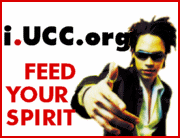Books

 | Darwinia, Robert Charles Wilson On a single night in 1912, Europe disappears from the earth. In its place is an alien continent populated by bizarre (and deadly) species of animals and plants—but no people. With Europe and its entire civilization wiped off the map, the world is plunged into a global depression. While the United States prepares to attack the remnants of the British Empire (now ruled from Canada), an American expedition explores the wild interior of the new world. |
 | Red Mars, Kim Stanley Robinson This first volume of Robinson's masterful Mars trilogy was written shortly after the fall of communism, but dissents from the triumphalistic mood of the 90s: Robinson's vision of the future argues that we have not reached "the end of history." His epic of Mars settlement and expansion is psychologically complex and politically astute. The characters are fully drawn, the action is breathtaking, and there are moments of real beauty. |
 | Exclusion and Embrace, Miroslav Volf In a word divided by culture wars and ethnic cleansing, is a "generous orthodoxy" possible? "I read [Volf] to be a visionary realist," says theologian Gabe Fackre. "He is propelled by his cross-resurrection faith to do and to urge works of love, to embrace the enemy, and he is confident in the coming of a reconciled world at the End to which Galilee, Calvary and Easter morning point." |
 | The Illusions of Postmodernism, Terry Eagleton Postmodernism is supposedly a gift to the left: now that we know there are no fixed absolutes (except for what I just said), we're finally free from all those "unifying discourses" and the patriarchy that concocted them to maintain its oppressive power. No "discourse" has a priori a claim on meaning, and that's good news for marginalized folks (like me, a gay victim of the patriarchy). Understood on those terms, postmodernism has become the ruling ideology of "queer theory," including "queer theology." But what gives my discourse any moral claim over against the discourse of, say, a homophobic neo-Nazi, if there is no moral center from which either can be judged? Eagleton's entertaining critique shows that postmodernism has its critics on the left as well as the right. |
 | Ethics, by Dietrich Bonhoeffer Let's start with Bonhoeffer, since Robertson coopted Bonhoeffer's heritage when defending his death threat against Venezuelan President Hugo Chavez. True, Bonhoeffer did join the conspiracy to assassinate Hitler. But Robertson could hardly have read the author of "The Cost of Discipleship" and "Life Together." In "Ethics," Bonhoeffer praises an America he knew and loved, but an America that had a sense of its own limits. What other books should we add to Robertson's recommended reading list? Write me at langohio@sbcglobal.net. |
 | The Humanity of God, Karl Barth We can speak of God's humanity only because of God's sovereign decision in Jesus Christ to become human. God is "absolutely unique ... overpoweringly lofty and distant ... wholly other," but in freedom chooses not to be alone but with and for the humanity God created. |
 | Church Dogmatics, Karl Barth One of the great theologians of the 20th century, Barth's return to the basics of Christianity was criticized as a retreat into the past, but Barth defies easy pigeonholing. A lifelong socialist, he was deported from Nazi Germany in 1935. Barth was the primary author of the Barmen Declaration—a theological protest against the nazification of the Christian churches in Germany. This book is an inexpensive digest of the best from Barth's monumental 14-volume "Church Dogmatics." |
 | Church Dogmatics, Karl Barth The complete 14-volume "Church Dogmatics" in a quality paperback edition: a magesterial work of 20th-century theology and an indispensible aid to preachers and students. |




<< Home